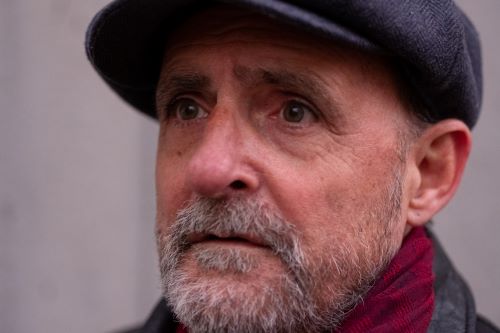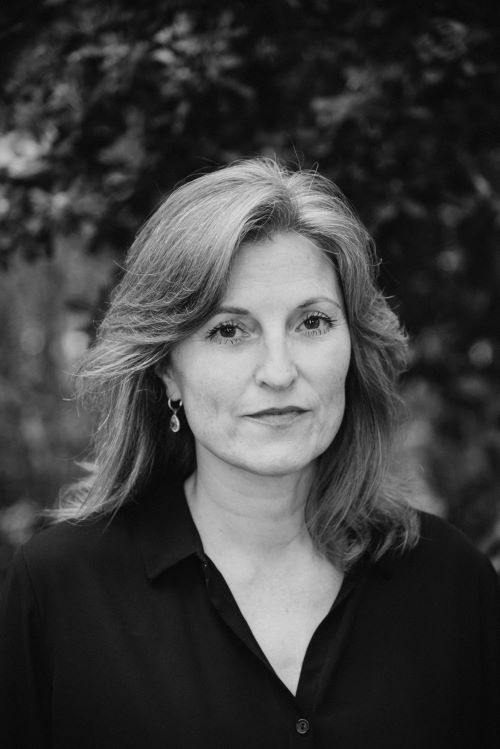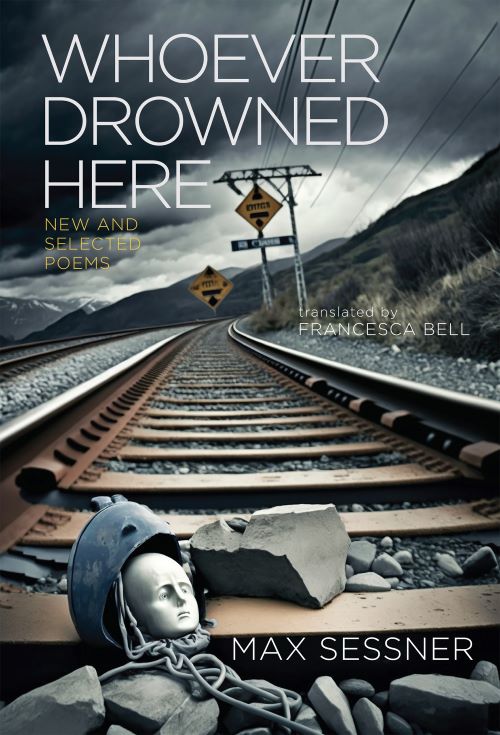We talked about all sorts of thingsabout poets we once knewabout how expensive everything had becomeand that the cat of an acquaintancedisappeared for days there wasno more proof of its existence onlyin her dreams it often appearedbut always as if it belonged to someoneelse a cold comfort we thoughtand the story of a friend occurredto you too complicated totell so it went back and forththis standing-next-to-each-other was puzzlingrandom and fruitless until Iheard myself say at the end yessee you later and we went our ways andI know that I thought for whatever reason:the last ride in the carriage belongs to you
Encounter
Max Sessner
Translated from the German
Feature Date
- September 24, 2023
Series
- Translation
Selected By
Share This Poem
Print This Poem
“Encounter” from WHOEVER DROWNED HERE: NEW AND SELECTED POEMS: by Max Sessner.
Published by Red Hen Press on September 26, 2023.
English Copyright © 2023 by Francesca Bell.
All rights reserved.
Reproduced by Poetry Daily with permission.

Photo:
Bert Strebe
Bert Strebe
Max Sessner was born in 1959 in Fürth, Germany. He lives with his wife in Augsburg and has worked as a bookseller, for the department of public health, and for the Augsburg public library. Sessner is the author of eight books of poetry including Das Wasser von Gestern (edition Azur, 2019), Warum Gerade Heute (Literaturverlag Droschl, 2012) and Küchen und Züge (Literaturverlag Droschl, 2005). Among other honors, he was awarded the 2019 Rotahorn Literary Prize.

Photo:
Emily Petrie
Emily Petrie
Francesca Bell is a poet and translator. She is the author of Bright Stain (Red Hen Press, 2019), a finalist for the Washington State Book Award and the Julie Suk Award, and What Small Sound, (Red Hen Press, 2023). Her work appears in B O D Y, ELLE, Los Angeles Review of Books, New England Review, and Rattle. She is the former poetry editor of River Styx, the translation editor of Los Angeles Review, and the Marin County Poet Laureate. She lives with her family in Novato, California.

Pasadena, California
Beloved by contemporary German readers, the poetry of Max Sessner is gathered for the first time in English in Whoever Drowned Here: New and Selected Poems. Painstakingly chosen from Sessner’s celebrated three collections and from new work, these poems employ a matter-of-fact magical realism to engage the profound, philosophical mysteries of the everyday. Sessner makes nimble use of the material world as he choreographs poignant reenactments of human yearning. Smocks in the window of a dry cleaner “trade stolen / caresses” at night. Death tries on your clothes while you sleep and eats your chocolate. A poem tires of being a poem, “a small mortal / thing that no one notices,” and sets off into the world to make a new life. The poems of Max Sessner are like compact, musical fairytales. They delight us and frighten us. They touch us with their ghostly, melancholy fingertips and lead us onward.
"Dreamlike is a place to begin, one of many inadequate ways I might speak of the poems of Max Sessner. Liquid is better, as his poems move like water and surprise me by revealing spaces between objects and people, between moods and moments that I didn’t know existed. If this book were a house, it’d be on the edge of town and have a tree growing through its roof; a river, it’d know your name but never quite make it to the sea; a photo, the person you miss most would be in it but turned around and looking the other way. In searching for passages to quote that would give you a sense of the imagination and vitality of Sessner’s work, its strangely touching warmth, I found it impossible to excise a portion of a poem without including the whole. Lifelike, then, is what I’ll end with, or better yet, alive."
—Bob Hicok, author of Red Rover Red Rover
“In Francesca Bell’s nimble and swift translations, Max Sessner’s poems come across from German into English with a deft sureness and dramatic delicacy. The wry, sometimes ironic, voice and point of view of these poems is also probing of the shadow mysteries that animate our everyday lives. Silence, loneliness, unsettled companionship, chaste assertion, and everywhere a sense of shifting depths—Sessner’s poems observe what we miss, and ask us to look again. They are quietly confident about what they know, and what they offer is the kind of value we find only in real poems. I’m grateful to have them.”
—Joshua Weiner, author of Berlin Notebook
Poetry Daily Depends on You
With your support, we make reading the best contemporary poetry a treasured daily experience. Consider a contribution today.



